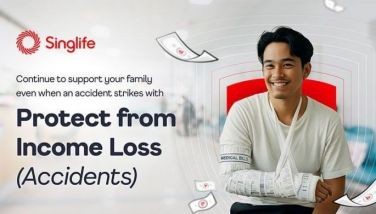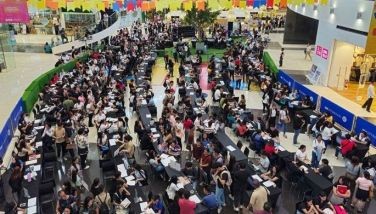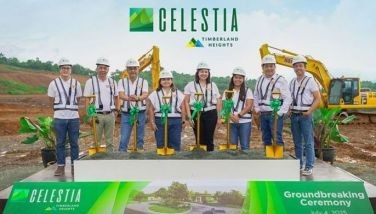Vulnerable groups and disasters
In society, children, women, the elderly, the people with disabilities and the migrants are considered among the vulnerable groups. They are afforded less attention, less protection, and support. There is a tendency, for example, to view the poor as a generalized group, without any sensitivity to the most vulnerable among them. Programs that do not pay special attention to the vulnerable groups miss responding to the specific, more urgent needs of those in this group during non-emergency or especially during emergency situations.
The present disasters, for example, enlighten us about the need to consider the special needs of these vulnerable groups. Infants and children need more care and some, requiring special food as well. Pregnant women have their special needs as well. Women also need extra items that are usually not included in relief packages. The elderly and the PWDs need special support to allow them to move and be removed from dangerous areas and situations, during ordinary and emergency situations.
With more disasters experienced all throughout the world, the urgency to include specific disaster management and relief programs for these vulnerable groups has become more evident.
For example, timely and important reminders for relief packages and teams to include items especially needed by infants and women were posted and circulated. For example, there were calls to include milk, diapers, sanitary pads, and other very group-specific relief goods. Please consider including wheelchairs for those needing these among PWDs and elderly, even volunteers to specially cater to their needs. Disaster management and relief operations should integrate responses that will address the specific needs of vulnerable groups as well who so much deserve all the attention and support of all.
Under ordinary circumstances, they are already disadvantaged. What more during disasters and emergencies? We sincerely hope that all local and international support groups for the victims of the earthquakes and the typhoons and other calamities prioritize and include in their support agenda the special needs of the vulnerable groups.
Disaster management trainings should also be given to the vulnerable groups so they can also participate and do their share in protecting and supporting themselves as far as possible. Disaster management trainings should also include programs for supporters and volunteers to pay attention and be able to appropriately respond to the specific needs of these vulnerable groups.
Research in various areas throughout the world showed that these groups are often the last to be provided assistance, during disasters especially. The migrants, many of them undocumented, fear being discovered by authorities and so are not part of official lists of those to be assisted. Women are often taken advantage of and peddled in exchange for much-needed assistance for the rest of their needy family members.
One Filipino elderly female migrant mentioned that during the 3/11 earthquake in Japan, she longed for someone to assist her as she had just gone through a major operation and had difficulty moving to a safer area but no one was around. Relief and support programs should be able to provide services to assist, provide support and protection for those with disabilities.
Already vulnerable, ignored, invisible to authorities and support groups before disasters, can you imagine how much more challenging it must be for them during disasters?
Sadly, many of those in vulnerable groups are among the earlier victims of any disaster. They are without proper and sturdy homes, they settle in unsafe locations and are therefore already predisposed to danger and risk far more than other advantaged groups.
Please, please remember our vulnerable groups always --before, during and after crises and disasters. They deserve so much better, they deserve more choices and better lives always.
***
Email: cherry_thefreeman@yahoo.com
- Latest

























